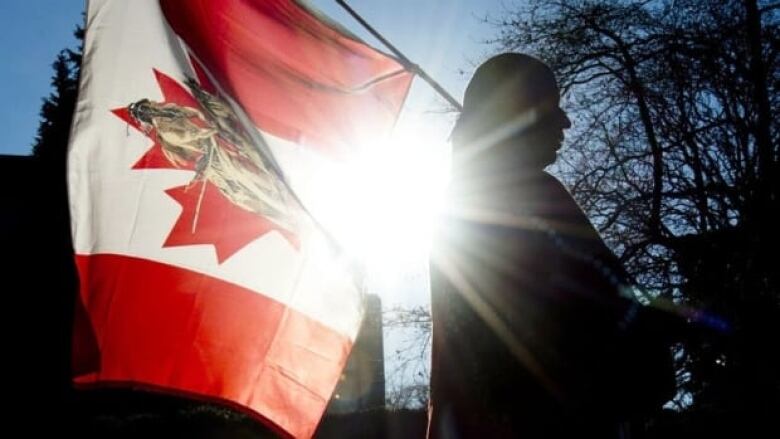Indian Act hampers First Nations accountability, expert says
'The guys trying to look after the reserve are hurting our people,' First Nation member says

Some community members in Wabaseemoong First Nation, near Kenora, Ont., are alleging financial mismanagement in the local administration office, but the community's financial advisor says everything is in order.
Kerry Carpenter sent copies ofcheque stubs, cheque requisitionsand pages of the ledger fromthe Wabaseemoong First Nation to CBC News. He said they showthat money intended for social services for the whole community is being misspent.
The First Nation's most recent audit is available on the Aboriginal Affairs and Northern Development website.Wabaseemoong'sfinancial advisor, Harry Green,said the information collected by Carpenter is old, and "has no bearing" on the First Nation's current financial status.
"A little bit of information can be a dangerous thing," Green said.
But Carpenter remains steadfast in his concerns.
"I'm speaking out," Carpenter said. "Yes, I'll get people upset for telling the truth: there is injustice in our community,people are suffering in our communities."
Carpenter said he is especially concerned about the children in Wabaseemoong, also known as Whitedog First Nation.
"That's a lot of money that should be used for the problems inour community, the lack of housing," he said. "Who do you blame, the kid sitting on theside of the road or the sniffer in the bush?It's the leadership. The guys trying to look after the reserve are hurting our people."
The auditor provided a qualified opinion of Wabaseemoong's financial statements, noting in particular questions around a $500,000 loan to WincriefForestry Products. The company filed forbankruptcy protection and the First Nation is pursuing a lawsuit to recover the value of the loan, according to auditor BDK and Company.
Edward McDonald, of Wabaseemoong,told CBC Newshe'd like police to review the First Nation's books and the documents Carpenter has obtained.
'We don't have that trust'
"We need a change of leadership that can be accountable, that we can trust," McDonald said. "Right now, we don't have that trust."
But accountability for First Nations under the Indian Actis a one way street that leads away from community members, according to Hayden King, thedirector for the Centre of Indigenous Governance at Ryerson University in Toronto.
"So when we do see issues of accountability and transparency, a lot of times it has to do with this governance structure whereby the community leaders aren't really working for the community, they're working for INAC(Indian and Northern Affairs Canada),they're reporting to INAC," he said.
The imposed system of governance doesn't always mesh well with traditional lines of responsibility, King said.
"You have very small communities, some of which still adhere to subtle forms of clan governance," he said. "So without the proper protocolsyou mighthave cases where communities are dominated by large families and that might exclude other members of communities."
'This is not a general trend'
King stressedthat financial mismanagement is rare in First Nations.
"I think that it's pretty remarkable that we have this awful form of governance imposed on communities through the Indian Actand we don't see more corruption," he said. "I think that's the surprising thing. This is not a general trend."
Many First Nations in Ontario are attempting to address accountability and transparency in traditional ways,he said.
"Some communities are trying to resurrectdispute resolution policies, decision-making policies," Kingsaid. "I call them policies, but in effect theyare legal orders internal to communities that have been used for many, many generations."
It's not clear how those authentic forms of governancewill fit with the "inherently flawed" Indian Act rules for chief and council, he added.
Concerned citizens, like Carpenter,have had to resort to public protests in First Nationswhere internal forms of accountability are not being instituted, Kingsaid.
For his part, Carpenter remains optimistic that his efforts will result in positive change.
"We're going to make noises and make a thunder cloud, gather all the clouds together," Carpenter said. "And hopefully we have a good storm and hopefully after that there will be clearing and we'll see positive things in our community."












_(720p).jpg)


 OFFICIAL HD MUSIC VIDEO.jpg)
.jpg)



























































































